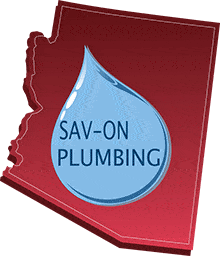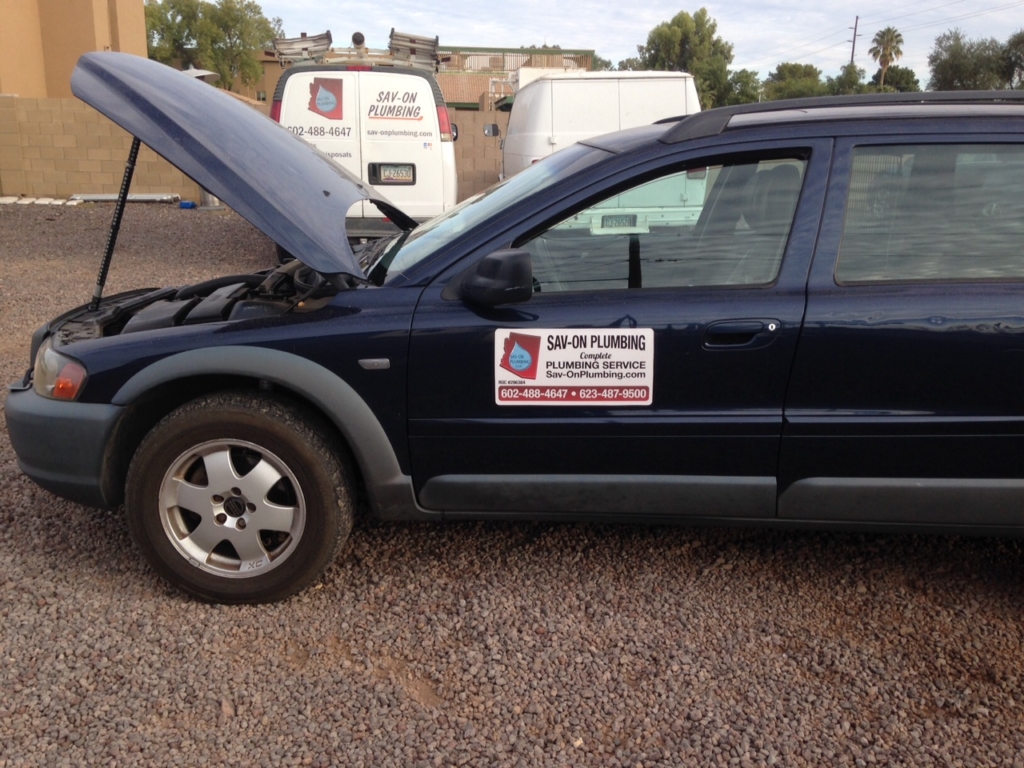Yes, your plumbing needs maintenance!
What would happen if you drove your car with too much air pressure in the tires, say 50 pounds of pressure when the manufacturer’s recommendation was for 32 pounds? Your tires would wear out prematurely. The same thing happens to your plumbing if you fail to maintain it effectively.
Excessive water pressure is the mortal enemy of a plumbing system and affects all your plumbing. Correct water pressure is so important that plumbing code requires homeowners to install a pressure reducing valve if they have excessive pressure.
When you have excessive water pressure, anything over 80 pounds, bad things happen to your plumbing. Faucets start leaking, toilet-fill valves wear out prematurely, hose bibs start leaking, and water heaters wear out and start leaking well before reaching their life expectancy. In this case, installing a pressure regulator valve on the incoming water line would be the preventative maintenance approach to plumbing.
You wouldn’t drive your car without the brakes functioning properly.
Using your brakes regularly lets you know they are working; they need to function properly when called upon to stop your car. The same principle holds true for the shut-off valves inside and outside your home.
If you develop a leak in your plumbing system, your shut-off valves (main shut off, water heater shut off, and angle-stop valves) need to shut off the water to avert the possibility of water damage to your home. However, most people never turn their shut-off valves to see if they are working properly. Then, when your plumbing develops a water leak and you need your valves, the valves don’t work. Many homeowners don’t know the location of their main water shut-off valve, much less if it works.
The pressure relief valve on your water heater is another area homeowners overlook. This is a safety feature required on all water heaters to protect a malfunctioning water heater from excessive pressure and the potential for an explosion. For an epic water heater failure, view this. The fun begins at 1:39. Yes, this can happen to you.
Manufacturers recommend homeowners test their relief valve yearly for proper function. If it does not work properly, replace it. This repair is beyond the scope of most homeowners’ skill set as it required the ability to solder copper pipe.
Toilet tank fill valves and tank flappers require periodic maintenance and replacement, as well. Toilet tank leaks are often silent. A bad fill valve or flapper can send a small but constant stream of water down the drain of the toilet where it is unseen, and often not heard. Homeowners won’t know they have a problem until they get a sky-high water bill.
A recent customer received her water bill and was shell-shocked at the amount. Her home showed no visible signs of a water leak and no sounds either. Upon further examination by our skilled plumbers, we discovered a small (.333 gallon per minute) leak in her toilet. This adds up to 14,385 gallons of water per month that were being wasted; money flushed down the toilet, so to speak. All this from a worn flapper. The same thing can occur if a toilet flush handle is not working properly.
Water heaters are not maintenance free. Have you replaced the anode rod in your water heater in the past three years? Anode rods are a water heater’s best friend because they protect the water heater from the corrosive elements found in our water. That is why they are called “sacrificial” anode rods. When the anode rod erodes, the minerals found in our water attack the lining of the water heater. The result is water heater failure, which usually results in a water heater leak. At this point, water heater replacement is the only option. Often, too, since water heater lines are under pressure, the leak means you must file a claim under your homeowner’s insurance.
A properly maintained water heater is designed to last 15 to 20 years, yet most people experience water heater failure well before that time. With water heater prices passing the thousand-dollar range, water heater maintenance is a better financial choice.
There are many other items in your home’s plumbing system that require at least periodic inspection and/or maintenance. We recommend a whole home plumbing inspection to identify areas that you should address immediately. We can then help you plan non-emergency repairs you can schedule as your budget allows.
At Sav-On Plumbing, we’re happy to provide you with a complimentary whole-home plumbing inspection with any service.

